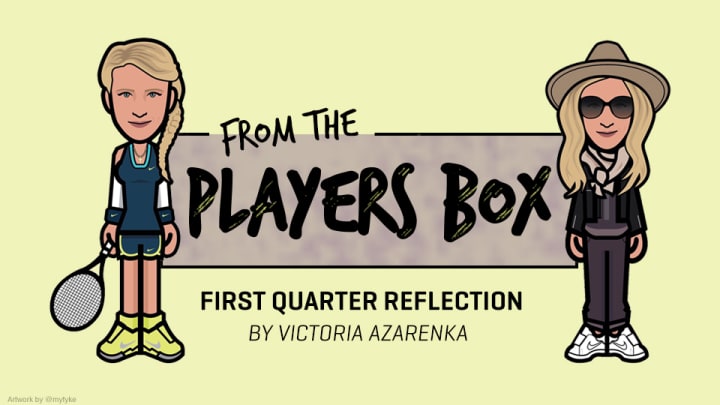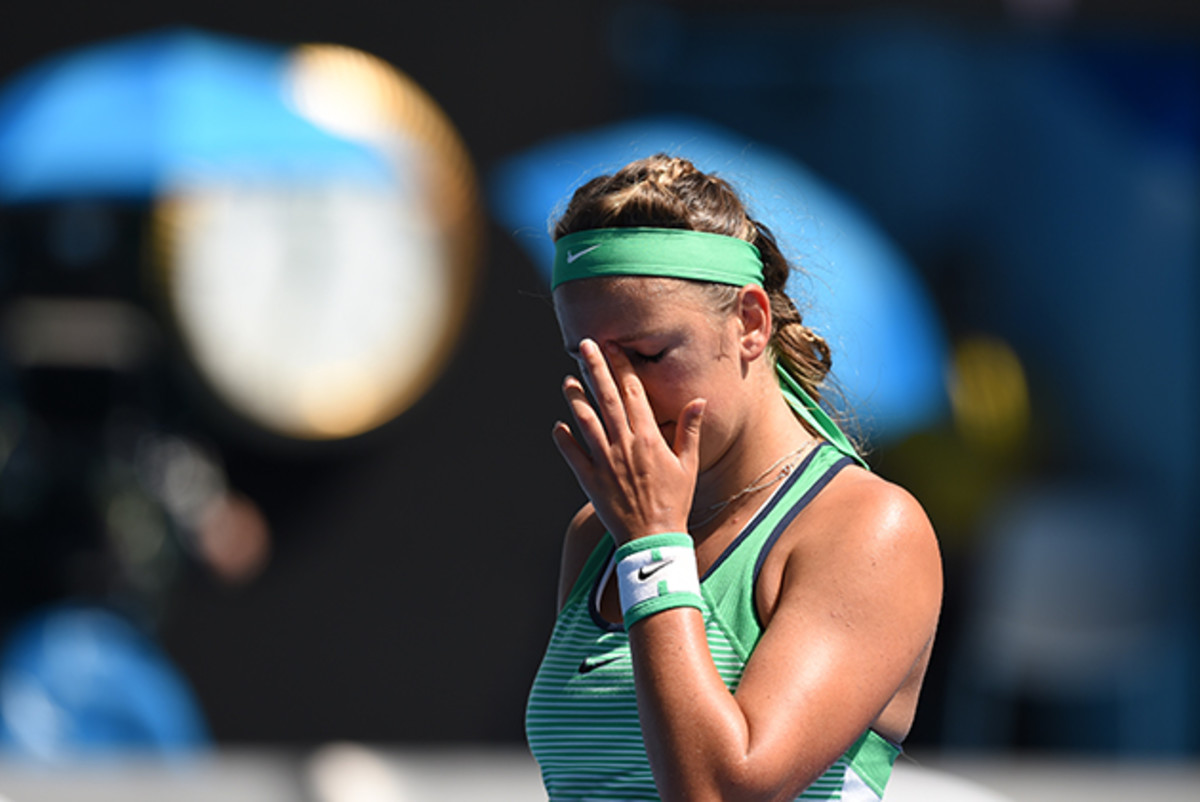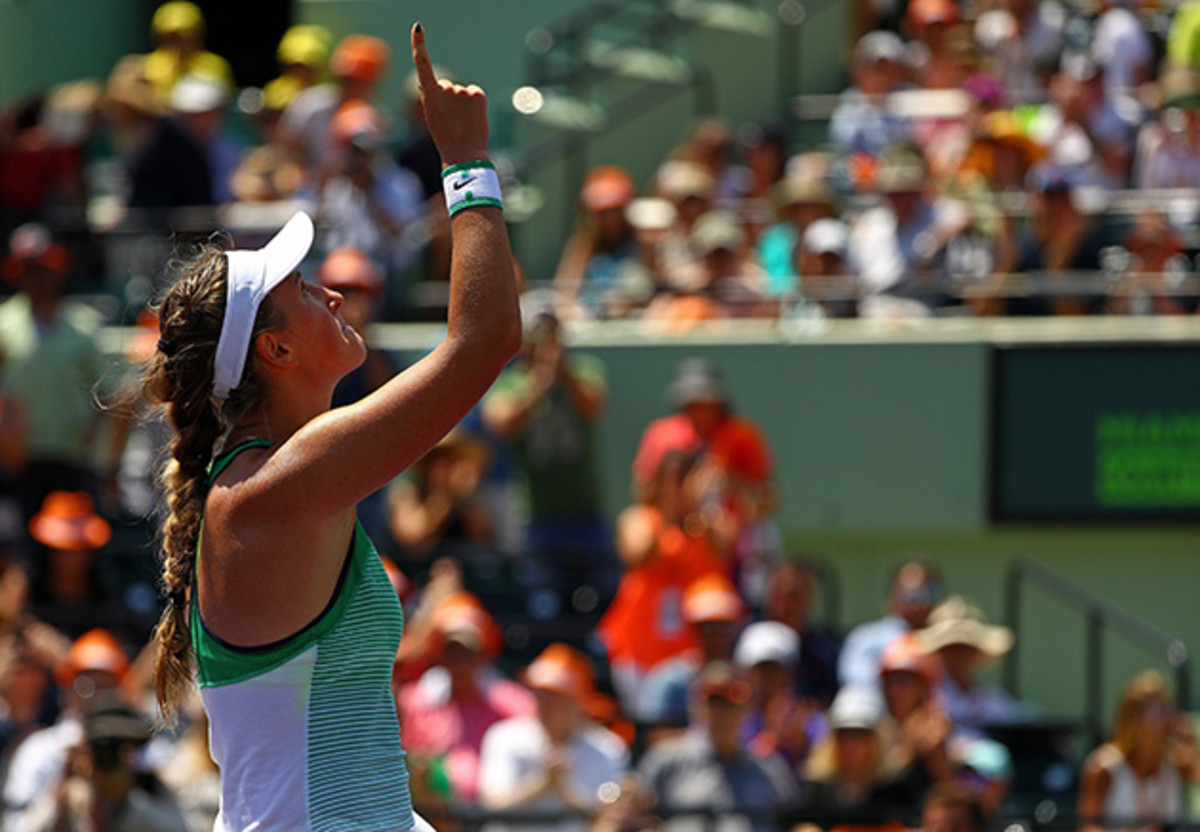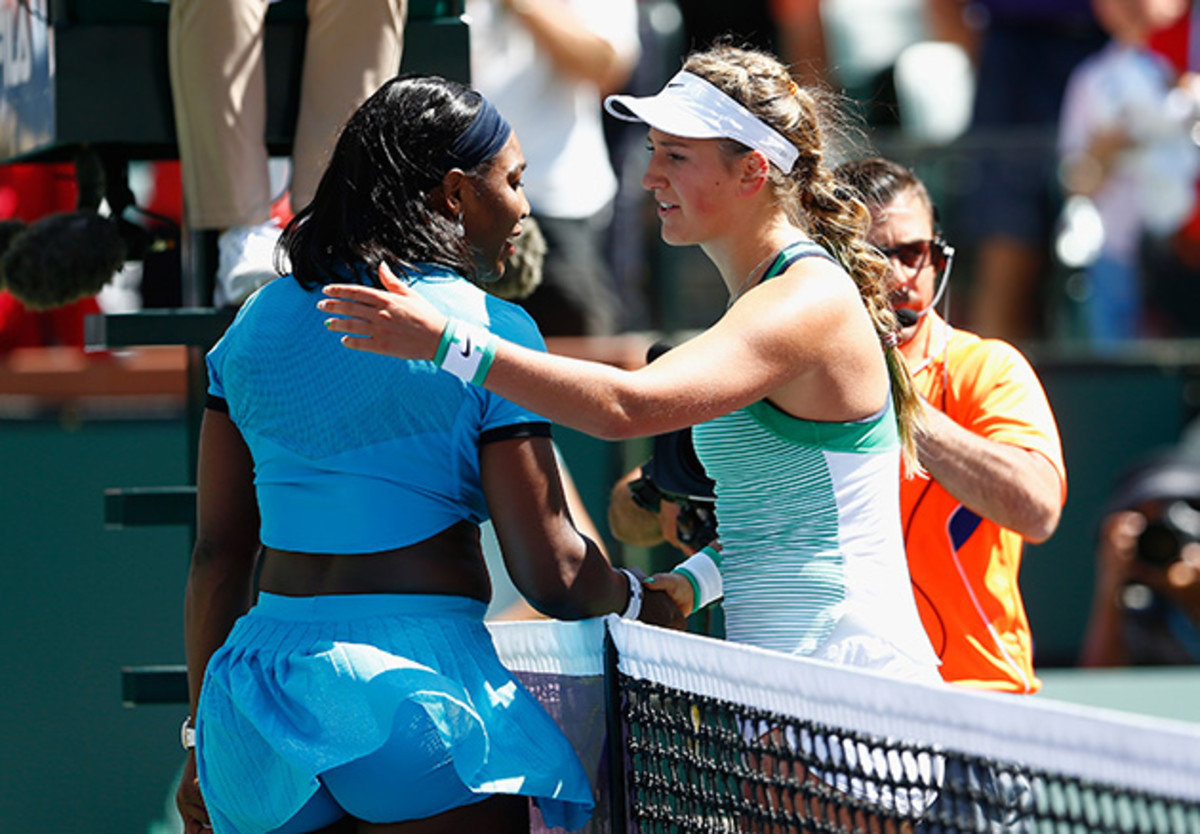Azarenka: Reflecting on the first months of the 2016 season

From the Players' Box is a series on SI.com which gives you a front row seat to all of the action in a professional tennis player's life—from training, to traveling and more—straight from a player's point of view. Each month, From the Players' Box with Victoria Azarenka will give the 26-year-old Belarusian a platform to discuss issues on Tour, practices, her life off of the court and more.
As the first three months of the 2016 season come to a close, my team and I are taking some important time to reflect on the highs and lows of the year and acknowledge what we, collectively, can do better going forward. I want to share some of these reflections.
A few months ago, I wrote about the hard work I put in during the preseason. From the very first training session, we focused on the process of getting better each and every day. As I traveled to Brisbane for my first event of the year, I vowed to take each day as a step towards improving my game: getting fitter, faster and stronger. A lot of athletes tend to concentrate on the results but I’ve focused on the process. Each day I set a mini goal to get better in some way. By doing that, I’ve learned that the titles and then ranking will take care of themselves.
Even after all of the hard work I did during the preseason, I still felt uncertain heading into Brisbane in January. I didn’t know if it was going to translate into performance. I felt good in practice and I was ready, but what happens on the court during a match is always unknown. Would all of the pieces fall into place when I needed them to? How many matches could my body sustain? Last year I wasn’t able to string together two or three matches in a row without feeling the physical consequences. None of this uncertainty stemmed from fear—it was what I’d describe as a combination of nerves and excitement, because I honestly didn’t know what was going to happen.
Azarenka: What I learned from my Super Bowl 50 experience
This year I’ve made a decision to try my best to live in the moment and not think too far ahead. It’s not easy—it’s not like you can flip a switch and make it happen. It’s a daily challenge to stay focused on the present and not allow my mind to wander and think about possible results in the future.
One of the toughest parts of playing in Brisbane was rediscovering how my body feels and moves during matches and learning to accept the recovery process. For the first time in a long time I started to trust my body again—this time not just in practice but also in high-pressure situations. Knowing that I could handle the pressure psychologically gave me a lot of confidence. I started seeing my hard work pay off; I was getting better from match to match. I was able to let go of that unknown factor and just enjoy competing out on the court. Brisbane was a great tournament for Team Vika.

Moving forward to the Australian Open—a two-week event and the first Grand Slam of the year—and there was a lot more at stake. There is always a lot happening at Grand Slams off the court and after a long break away, I had to relearn how to manage my energy. I had to adapt to the environment all over again in order to deal with all of the hype surrounding such a big sporting event. I tried to trust how my body was feeling by managing my workload during the tournament. This approach is ultimately what helps me play my best. But looking back, I didn’t do the best job of this at the Australian Open, which ultimately led me to a match where I didn’t have enough—both mentally and physically—to beat a great opponent.
From the Players' Box with Victoria Azarenka: My offseason training
In the important moments of my match against Angelique Kerber, I should have raised my level and found the power inside me, but I just didn’t have enough when I needed it. I was really disappointed with the way I handled the match because I believe I had many chances that I didn’t take advantage of and, with the high expectations that I’ve set for myself and the determination that I have, it was a very painful experience. In life, we have the opportunity to learn from situations that don’t quite go our way. The lesson here was not to overreact but to think it through and have the ability to turn a bad situation into a positive one. I gave myself a bit of time to feel the disappointment, but focused on setting new priorities and set new mini goals that I could achieve each day between the loss and the next two big events in Indian Wells and Miami.
After Melbourne, I took a six-week training period and readjusted my fitness routine. My team and I worked on specific areas that we felt were missing from my Australian Open performance and needed to be improved. I really used my time to fix those small errors, and by the time Indian Wells came around, I felt prepared. I knew that going onto the court I had to apply everything I had been doing in practice—this may have meant trying and failing, but I knew I had to stick with it.

This time all of the pieces fell into place. Don’t get me wrong—it wasn’t a smooth ride. Every day during the month of March was a battle for me. I had some extremely tough matches and had to face some high expectations put on me by the media. Access to information is so easy with social media all around us, and being questioned by the media on a regular basis makes it difficult to disconnect. It’s hard to escape even when I pay little attention to it. Regardless, I felt 100% prepared and never doubted my abilities and it was exciting for me to go on the court and push myself to reach new levels physically. I also vastly improved my match statistics in areas such percentage of service points won.
By the time the Miami Open quarterfinals came around, there were higher expectations and more noise surrounding my matches. I think it’s good for the fans to make predictions and have those conversations because it helps the sport, but it doesn’t make any difference to me who people think is going to win a match. Whether people predict that I will come out on top or not doesn’t affect me. I am the one who has to face reality, go out on court and play the match.

The most exciting moment for me so far this year was playing in the final of Indian Wells against Serena. I want to play against the best player in the world—it’s the reason I play the game. I really do live for moments like that. I want to challenge myself and my game. No matter what round of the tournament you’re in, you have to beat the best if you want to win big titles and I’m looking forward to a lot more of these battles. I am sure there are many more to come.
The SI Extra Newsletter Get the best of Sports Illustrated delivered right to your inbox
Subscribe
People always ask me what my goals are. This year I had a goal of making smart decisions. I play the tournaments I want to play, and I go to places I want to go instead of doing what others think I should do. Over the years of being injured, I always felt like I had to play more tournaments, more matches and push my body to the limit. But now I’ve realized: that approach is not the best one for me. In the past, I felt like my body was constantly playing catch up and I always had to will myself to do what I thought I had to do to win. I wasn't listening to what my body needed.
Reflecting back on an amazing March and now looking forward to the upcoming clay court season 😊📽 pic.twitter.com/ejFmygP6LU
— victoria azarenka (@vika7) April 7, 2016
The other exciting part of these first few months of the season was how well I was able to recover from day to day. I was able to connect and listen to my body. I focused on the small details, corrected the mistakes from January and as a result, I made better priorities, adjusted to training and played less tennis. I actually felt the ball better—kind of ironic, don’t you think!?
Reflecting on the past three months, it has definitely been a good start to the year and an amazing feeling to win the Sunshine Double.
But it has only made me hungry for more. Now it’s time to get back to work. See you on the clay!
